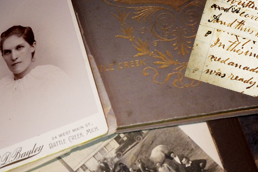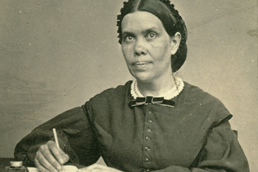
Facebook Posts
Muriel E. Chapman Collection: The History of Seventh-day Adventist Nursing
The Center for Adventist Research has the Muriel E. Chapman Collection: The History of Seventh-day Adventist Nursing (270).
Muriel Elizabeth Chapman was a nursing school graduate of San Diego County General Hospital in 1937. She also completed post-graduate courses in Obstetrical Nursing at Margaret Hague Maternity Hospital, Orthopedic Nursing at Emory University, and earned her doctorate degree in Education in 1969 at Columbia University. Her doctoral dissertation was titled, “Nursing Education and the Movement for Higher Education for Women: A Study in Interrelationship, 1870-1900.”
Dr. Chapman was asked by the Association of Seventh-day Adventist Nurses to write the book, “Mission of Love: A Century of Seventh-day Adventist Nursing.” This collection consists of Chapman’s files she compiled while researching and writing her book on the history of Seventh-day Adventist nursing. Historical Materials that she gave the Andrews University Department of Nursing are part of this collection as well.
#AdventistHistory #ChurchHistory #ChristianHistory #ChristianHeritage #ReligiousHistory #ReligiousHeritage #Faith #Adventist #SeventhDayAdventist
... See MoreSee Less


 +1
+1
- likes love 8
- Shares: 2
- Comments: 0
John Andrews: “The spirits of devils are about to perform the most extraordinary miracles. They will do this, professing to be the spirits of our departed friends. Hence the great importance of a thorough knowledge of the Bible doctrine of the sleep of the dead.”
John Andrews, The Three Angels of Revelation 14:6-12, (Advent Review Office, Rochester, N. Y., 1855), 140., egwwritings.org/read?panels=p1615.608&index=0
#AdventistHistory #ChurchHistory #ChristianHistory #ChristianHeritage #ReligiousHistory #ReligiousHeritage #Faith #Adventist #SeventhDayAdventist
... See MoreSee Less

Art in Adventism: Jesus invites mankind to the judgment (Rev 14:6–7). These Times, 1971, Vol. 80, No. 10.
#AdventistHistory #churchhistory #christianhistory #ChristianHeritage #ReligiousHistory #ReligiousHeritage #faith #adventist #seventhdayadventist
... See MoreSee Less

Historical Fact: Jonas Mokotsi Mbyirukira (1914–1993), an Adventist pastor, administrator, and church leader from Rwanda, was the first native African to become president of a union conference.
Mbyirukira helped open the door to African leadership in the church by serving as the first African in a number of leadership roles, including serving as the first African president of a field in the Trans-Africa Division and later as the first African Union president in the same division after forty-six years of what was described in the “Trans-African Division Outlook” as “outstanding service and faithfulness to the Church.” His contribution is seen in nearly half a century of service to the church and leading the church through a period of extraordinary growth during a period of tumult and significant social change.
Mbyirukira, James, Shema Mbyirukira. "Mbyirukira, Jonas Mokotsi (1914–1993)." Encyclopedia of Seventh-day Adventists. January 28, 2020. Accessed May 21, 2025. encyclopedia.adventist.org/article?id=AFE9.
#AdventistHistory #ChurchHistory #ChristianHistory #ChristianHeritage #ReligiousHistory #ReligiousHeritage #Faith #Adventist #SeventhDayAdventist
... See MoreSee Less









